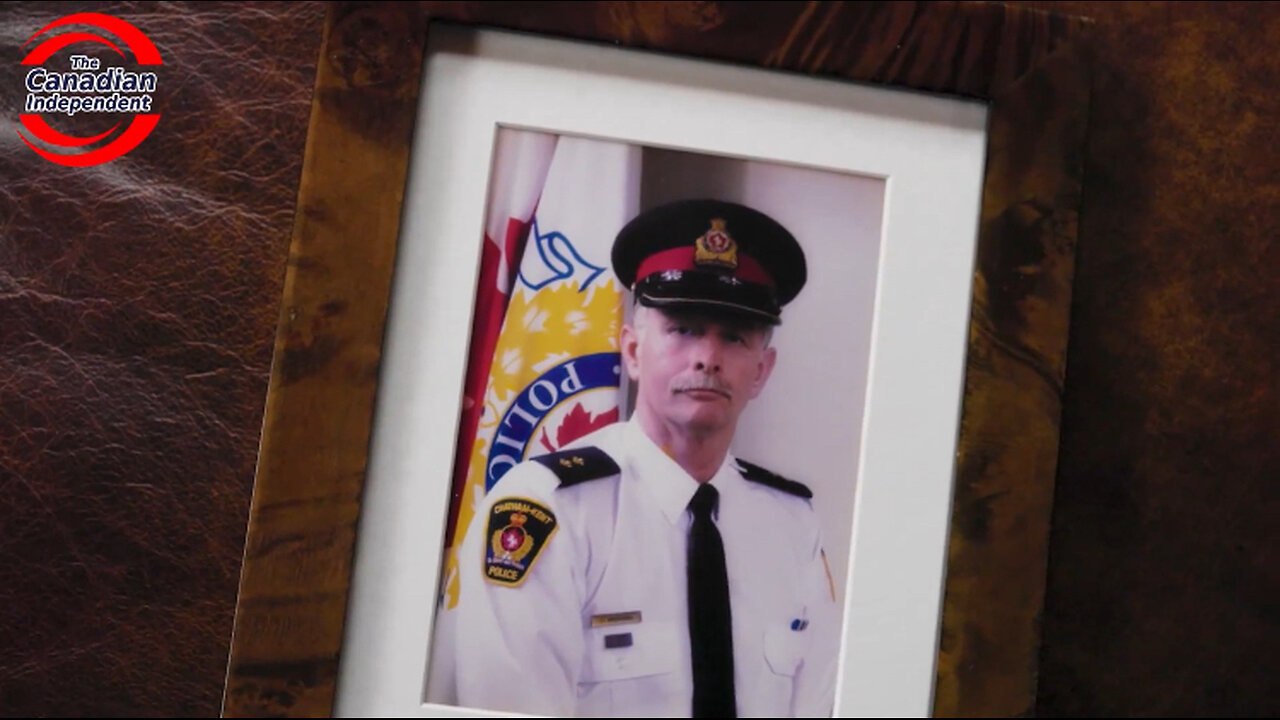Premium Only Content

Medical Murder
Former Chatham-Kent Deputy Police Chief Passes Away in Hospital After 7 Days of Medical Horror.
The Canadian Independent traveled to Chatham, Ontario, to interview Clare's wife, Evelien Wiersma, and share the story of 67-year-old Clare Wiersma. Clare served his community first as a police officer, eventually rising to the position of deputy chief of police for Chatham-Kent. Upon retirement, he remained actively engaged within his community, working with his son building homes. Described by his wife as healthy and fit, Clare had very minor arthritis and was not on any medication.
The events unfolding from the time Clare was taken by ambulance to the hospital, where he remained for seven days before passing away, can only be described as shocking.
On December 23, 2021, Clare's daughter called for an ambulance after her father collapsed at home. He exhibited symptoms of a fever, dry cough, and mild confusion. According to Clare's wife, he had tested positive for Covid-19 days prior and was unvaccinated.
When ambulance personnel arrived at the home and inquired about vaccination status for Clare and his family, Evelien responded and said they were unvaccinated, one paramedic allegedly rolled their eyes and muttered something under their breath.
Upon arrival at the hospital, Clare's 722-page medical records indicated a fever, low blood pressure, dry cough, and slight confusion. Clare was later admitted to the hospital and, two days later, transferred to the ICU solely due to a slight increase in his oxygen requirements, as per his medical records.
On December 25th, while in the ICU, Clare had a conversation with his wife and kids over FaceTime. His wife, Evelien, reported that everything seemed fine during the conversation. Clare was alert, and they chatted and prayed together. However, Clare mentioned that hospital staff were not providing him with information or a prognosis. Evelien claimed that doctors and nurses never initiated updates about Clare, and she always had to inquire with the hospital for information, and even then that was a struggle.
On the same day, according to Clare's medical records, he received a single dose of Tocilizumab, a drug used to treat critically ill Covid-19 patients, despite Clare not showing signs of critical illness. The drug has severe side effects, including causing serious or fatal infections, liver problems, dry cough, fever, and shortness of breath. Health Canada has issued a warning about the drug, stating it can cause serious drug-induced liver injury requiring a transplant. According to ACTEMRA’s own website, it says the drug “changes the way your immune system works. This can make you more likely to get infections or make any current infection worse.”
The evening of December 25th and the following day, December 26th, marked a downturn in Clare's condition. He transitioned from being alert to being intubated and ventilated, receiving numerous different drugs until his passing on December 30, 2021, at 11:30 am, all evident in his medical records.
Evelien states that there was no consent given for her husband to be intubated or ventilated, and there is no mention of consent in Clare's medical records either.
Evelien says she received a phone call from the hospital on December 30th and was advised that her husband wasn't doing well, urging her to hurry to the hospital. Upon arrival, when Evelien entered Clare's room and saw him hooked up to all the machines, she fainted. Evelien was then taken to the emergency department. A little while later, Clare would pass away without his wife and children by his side.
A detailed examination of Clare's medical records revealed a “medication administration record” consisting of 131 pages, with hundreds of instances of various medications, including fentanyl, numerous other highly controlled and addictive medications, anti-blood clotting drugs, heart-related drugs, sedatives, paralyzing drugs, and various other drugs that had been administered or injected into Clare mainly from December 25th to December 30th, the day he passed away.
Evelien Wiersma asserted that multiple doctors reviewed Clare's 722-page medical records after his death and concluded that he would be alive today if treated for sepsis and administered the necessary antibiotics.
Bacterial and viral infections, like pneumonia, can lead to sepsis. Clare did show signs of having sepsis, such as fever, confusion or disorientation, and shortness of breath upon arrival at the hospital. Additionally, Clare exhibited low blood pressure, which can also signal the beginning stages of septic shock. It certainly would not have hurt for Clare to be given antibiotics, and it is very possible he would be here with us today had the doctors opted to, at the very least, try antibiotics. Instead, they waited three hours before he died to give him two antibiotics.
Evelien felt it necessary to share Clare's story in the hope that others will speak up and speak out. She reveals having two other friends who have lost loved ones under similar circumstances, emphasizing that she is not alone in experiencing what happened to her beloved husband.
Clare leaves behind his wife, Evelien Wiersma, of 45 years, along with their four children, 26 grandchildren, and 2 great-grandchildren. Joining the Chatham Kent police in May 1980, he worked his way up to deputy chief before retiring in April 2012. In the last 10 years of his retirement before his passing, Clare was well-known in the community for assisting the vulnerable. Not ready to fully retire, he co-founded a construction company with his son, building homes together. An active individual, Clare enjoyed kayaking, boating, hiking, fishing, hunting, and waterskiing.
-
 LIVE
LIVE
Kimberly Guilfoyle
1 hour agoDismantling DEI Once and For All, Live with Tyler O’Neil & Eric Deters | Ep.190
1,839 watching -
 LIVE
LIVE
Redacted News
54 minutes agoBREAKING! TRUMP SIGNS ORDER TO RELEASE JFK FILES, CIA IS FURIOUS | REDACTED NEWS
14,269 watching -
 LIVE
LIVE
Benny Johnson
1 hour ago🚨WATCH: President Trump Declassifies JFK, RFK, MLK Files LIVE Right Now in Oval Office, History Now
11,342 watching -

In The Litter Box w/ Jewels & Catturd
20 hours agoBorder Is Closed | In the Litter Box w/ Jewels & Catturd – Ep. 726 – 1/23/2025
34.9K10 -
 1:41:52
1:41:52
The Quartering
3 hours agoDemonic Visitors, ICE Raids Begin, Brett Cooper Drama, Trump Vs Woke Bank, MSM Helping Illegals!
63.2K16 -
 LIVE
LIVE
Barry Cunningham
2 hours agoWATCH LIVE: TRUMP DAILY BRIEFING - PETE HEGSETH CONFIRMATION & NEW OTDERS BY PRESIDENT TRUMP
1,669 watching -
 LIVE
LIVE
Bare Knuckle Fighting Championship
20 hours agoBKFC KNUCKLEMANIA V PHILADELPHIA PRESS CONFERENCE | LIVE!
336 watching -
 2:11:55
2:11:55
vivafrei
5 hours agoTrump is Making Some BAD Decisions! More mRNA "Vaccine" Tyranny? Jan. 6 Release UPDATES! & More!
36.3K134 -
 LIVE
LIVE
Darkhorse Podcast
4 hours agoThe 261st Evolutionary Lens with Bret Weinstein and Heather Heying
1,199 watching -
 56:14
56:14
LFA TV
4 hours agoDEMOCRATS ARE PRO DEATH - BORN ALIVE ACT | LIVE WITH HANNAH FAULKNER 1.23.25 3pm
5.94K2